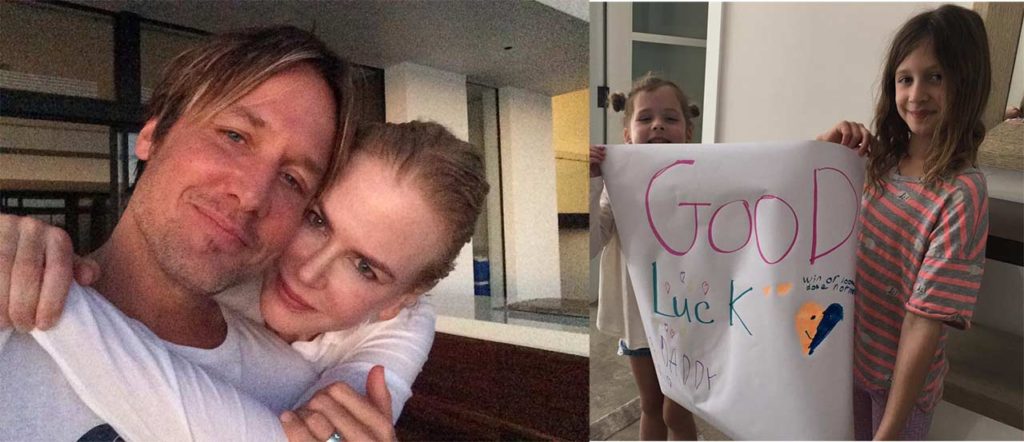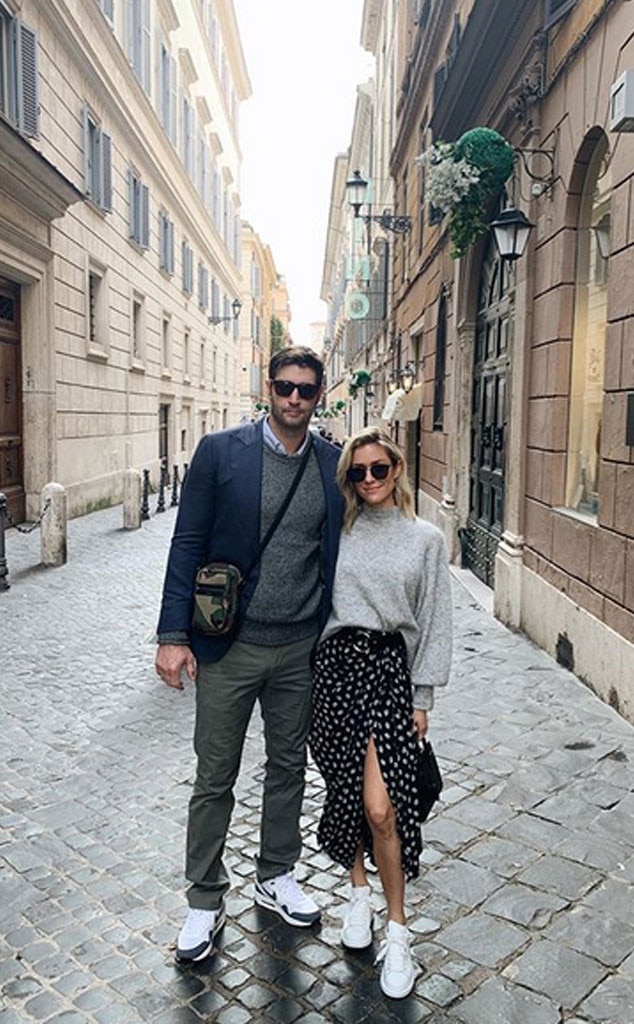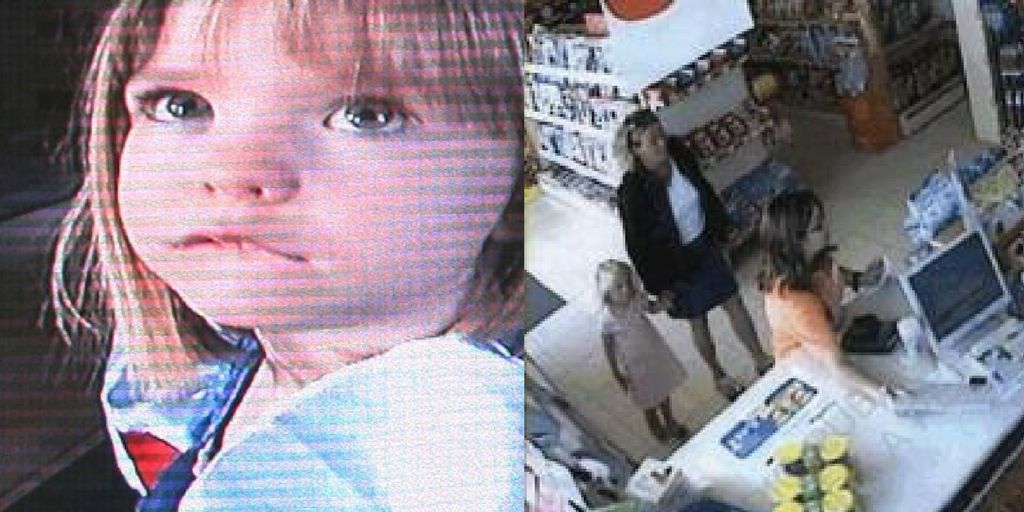They weren't really brothers, but Bill Medley and Bobby Hatfield were most definitely righteous, defining and perhaps even inspiring the term "blue-eyed Soul" in the mid-'60s. Bobby Hatfield was born on August 10th, 1940 in Beaver Dam, Wisconsin, and Bill Medley was born on September 19th, the same year in Santa Ana, California. When Medley and Hatfield combined forces in 1962, they emerged from regional groups The Paramours and The Variations.
In fact, they kept The Paramours billing for their first single. Thinking of a new name, the pair remembered the night they sang in front of a group of U.S. Even on the Moonglow recordings, Bill Medley acted as producer and principal songwriter, taking the low parts with his smoky baritone, Hatfield taking the higher tenor and falsetto lines. The pair was spotted by British producer Jack Good, who had made his way to Los Angeles and was a producer with the popular Rock TV show Shindig!. They appeared on the program and were signed to the Philles label by Phil Spector, who had already had a run of success with The Crystals, The Paris Sisters, Curtis Lee, The Ronettes, and others. They were given a song that Spector had written with Barry Mann and Cynthia Weil.
Hatfield and Medley recorded the tune and it entered the charts in late 1964. It topped the charts in the U.S. and the UK and to this day is one of the most requested songs of the era. At nearly four minutes, the song was pushing the limits of what could be played on AM radio in the mid-'60s, and some listeners thought they were hearing a 45 single played at 33 rpm due to Medley's low, blurry lead vocal.
They were now international stars, and followed up their hit with another that reached the Top Ten, "Just Once In My Life". The duo reunited in 1974 on Dennis Lambert and Brian Potter's Haven label. In 1987, he scored a top pop and easy- listening hit in duet with Jennifer Warnes on "(I've Had) The Time of My Life" from the hit movie Dirty Dancing. The Righteous Brothers' "Unchained Melody" became a major hit from the movie Ghost in 1990.
In 1991, the duo recorded Reunion and Bill Medley recorded Blue Eyed Singer for Curb/Warner Brothers Records. They duo has toured regularly during the summer since the mid-1990s. The appearance of "You've Lost That Lovin' Feeling" on the soundtrack to the 1986 film Top Gun was but one sign of the Brothers' long-lasting appeal. The pair re-united to perform together on a semi-regular basis through the '80s, most notably on a 20th Anniversary reunion tour in 1982. Medley and Hatfield also launched The Hop, an Orange Country nightclub featuring performers from the '50s and '60s. Re-immerging a solo artist, Bill Medley enjoyed another smash hit with his 1987, chart topping single "(I've Had) The Time Of My Life", a duet with Jennifer Warnes from the Dirty Dancing soundtrack album.
When "Unchained Melody" became one of 1990's biggest hits after its inclusion in the movie Ghost, no one was more surprised than Medley and Hatfield. "I feel that the popularity of the song is just a miracle", Hatfield told the Chicago Sun-Times. "I've always loved it, but never expected the public's reaction to it to be quite this feverish and strong." As they performed together in 1998, the Brothers found that "Unchained Melody", featuring Hatfield's lead vocal, drew ecstatic response. Combined with the air play that the original version of the song was receiving, it seemed the perfect time to reunite The Righteous Brothers as a recording act once again.
They went into the studio together for the first time since 1974, with Medley producing. The sessions, which resulted in the tracks heard on their album "Reunion", showed that Medley and Hatfield's powers as singers remained unique and undimmed. The new century saw a new generation of fans discover the magic of the Righteous Brothers. "Considering how long we've been in the business, this is a real treat," said Medley. The Righteous Brothers released three albums under the Moonglow label, one of these and a further compilation album were released after they had joined Phil Spector.
They released 12 singles with Moonglow, but only two were moderate hits – "Little Latin Lupe Lu" and "My Babe" from their first album Right Now!. In August and September 1964, they opened for The Beatles in their first U.S. tour. However, they left before the tour finished as they were asked to appear on a new television show called Shindig! ; they also felt unappreciated by the audience as they were then little known on the East Coast, and the audience demanded to hear the Beatles while they were performing.
They returned to Los Angeles to tape the pilot for the show, and would later appear in the show regularly. In October and November 1964, they opened for The Rolling Stones on their American tour. Bobby Hatfield and Bill Medley were in different groups before they met – Hatfield was in a group from Anaheim called the Variations, and Medley in a group from Santa Ana called the Paramours. Barry Rillera, a member of Medley's band who was also in Hatfield's group, suggested they go see each other's show and perform together. Later, after a member of Paramours left in 1962, Hatfield and Medley joined forces and formed a new Paramours, which included Johnny Wimber .
They started performing at a club called John's Black Derby in Santa Ana, and were signed to a small record label Moonglow in 1962. They released a single "There She Goes (She's Walking Away)" in December 1962. However, the Paramours did not have much success and soon broke up, leaving Hatfield and Medley to perform as a duo in 1963. According to Medley, they then adopted the name The Righteous Brothers for the duo because black Marines from the El Toro Marine base started calling them "righteous brothers".
Marine in the audience would shout, "That was righteous, brothers!", and would greet them with "Hey righteous brothers, how you doin'?" on meeting them. The pair soon scored with other hit singles, including "Just Once in My Life," "Unchained Melody," and "Ebb Tide." They became the first rock and roll act to play the strip in Las Vegas when they opened at The Sands in 1965. After releasing the Number 1 hit "Soul and Inspiration," also written by Mann and Weil, along with a few other minor hits, the duo broke-up after Medley chose to pursue a solo career. After little success working separately, the pair announced their reunion on The Sonny & Cher Show in 1974 and quickly recorded "Rock and Roll Heaven," which soon hit the Top Ten on Billboard's Hot 100. That same year, famed music producer Phil Spector signed them to a contract after hearing them perform at the Cow Palace in San Francisco.
Their vocal style was called "blue-eyed soul," since they sang in a manner much like Black artists emerging at that time. Spector commissioned a song from Barry Mann and Cynthia Weil, a prominent songwriting team. In late 1964, The Righteous Brothers released their first major hit, "You've Lost That Lovin' Feeling'" which rose to number one on the charts in February 1965. That record went on to become the most-played song on American radio and television in the 20th century. It's a bit of a mystery as to why the Righteous Brothers never came close to duplicating that success during the rest of their tenure at Verve.
They would only have a couple of other Top 40 hits in the 1960s with "He" (#18) and "Go Ahead and Cry" (#30), both in 1966, even with the aid of occasional compositions by the formidable Goffin-King team. The follow-up to 'You've Lost That Lovin' Feelin', the Carole King/Gerry Goffin/Phil Spector-authored 'Just Once In My Life', used the same formula as its illustrious predecessor, becoming another major hit. The next release, a further Goffin/King/Spector song, 'Hung On You', was unlike their first Philles 45s in that the Righteous Brothers sang the song mostly together. The call and response at the climax of the track went a step further than on the two previous releases with Bobby Hatfield and Bill Medley completely unrestrained.
A marvellous mass of sound, 'Hung On You' was not really appreciated by your average DJ, who instead started to play the B-side 'Unchained Melody', a Bobby Hatfield solo from the 'Just Once In My Life' album. As with all Righteous Brothers albums, there was always at least one solo each. Recorded in a single studio take with the minimum of backing produced by Bill Medley, Bobby Hatfield gave a truly majestic performance on 'Unchained Melody' and it quickly became a major hit, making #4 in the US charts. In 1974, Medley and Hatfield announced their reunion at an appearance on The Sonny & Cher Comedy Hour.
They signed with Haven Records, run by producers Dennis Lambert and Brian Potter and distributed by Capitol Records. Within a few weeks of reforming, they recorded Alan O'Day's "Rock and Roll Heaven", a paean to several deceased rock singers which became a hit, peaking at No. 3 on the Billboard Hot 100. After 1975, however, the Righteous Brothers would not appear in music charts except for re-releases of older songs and compilation albums, some of which were re-recordings of earlier works. In 1990, Bobby Hatfield's original recording of "Unchained Melody" was featured in the popular feature film Ghost, starring Patrick Swayze and Demi Moore. It triggered an avalanche of requests to Top 40 radio stations by fans who had seen the movie to play the 1965 Righteous Brothers' recording.
This motivated Polygram (which now owned the Verve/MGM label archives) to re-release the song to Top 40 radio. It became a major hit for a second time, reaching No. 13 on the Hot 100 in 1990. The duo quickly re-recorded another version of "Unchained Melody" for Curb Records. Both the reissued and the re-recorded songs charted at the same time for several weeks, and the Righteous Brothers made history as the first act to have two versions of the same song in the Top 20 at the same time. The re-recorded "Unchained Melody" hit No. 19 on the Hot 100 and was certified platinum by the Recording Industry Association of America .
They made history in January 1965 by being the first act to have three albums in the top 20 at the same time with 'Right Now' and 'Some Blue Eyed Soul' on Moonglow and, of course, 'You've Lost That Lovin' Feelin' on Philles. It was a major surprise when most people actually saw the Righteous Brothers, presuming that they were black, only to discover they were in fact white. As white men who could sing black music, the phrase 'blue eyed soul' was coined for them. Their first major hit single was "You've Lost That Lovin' Feelin'" on the Philles label in 1965. Produced by Phil Spector, the record is often cited as one of the peak expressions of Spector's Wall of Sound production techniques.
It was one of the most successful pop singles of its time, despite exceeding the then standard length for radio play. Indeed, according to BMI, "You've Lost That Lovin' Feelin'" remains the most played song in radio history, estimated to have been broadcast more than eight million times. After the major hit "He," The Righteous Brothers managed only moderate-to-minor hits through 1967, and, by 1968, the duo had broken up.
Medley subsequently pursued a solo recording career on MGM, achieving moderate hits with "Brown Eyed Woman" and "Peace Brother Peace" in 1968. He recorded for MGM through 1970 and then switched to A&M Records. In the meantime, Hatfield recruited Jimmy Walker, a former member of The Knickerbockers (1965's "Lies"), for a sole Righteous Brothers album and recorded a solo album. Their first major hit single was "You've Lost That Lovin' Feelin'" in 1965. It was one of the most successful pop singles of its time, despite exceeding the standard length for radio play.
Indeed, "You've Lost That Lovin' Feelin'" remains the most played song in radio history, estimated to have been broadcast over 8 million times to date. A little known fact about this song was that Spector utilized Sonny and Cher as back-up singers. The duo split up in February 1968, a breakup that would last for more than six years, when Medley left to pursue a solo career. Medley recorded a few solo recordings on several labels, while Hatfield teamed up with singer Jimmy Walker using the Righteous Brothers name on the MGM label. Medley first recorded "I Can't Make It Alone" written by Carole King, but the song failed to make much of an impact.
The following single, "Brown Eyed Woman" written by Mann and Weil, performed better. However, neither he nor Hatfield was able to match their previous chart success. In 1964, music producer Phil Spector came across the Righteous Brothers when they performed in a show at the Cow Palace in Daly City, where one of Spector's acts, The Ronettes, was also appearing, and he conducted the band for the show. Spector was impressed enough to arrange a deal with Moonglow in early October 1964 allowing him to record and release songs by the Righteous Brothers in the US, Canada and UK under his own label, Philles Records. Prior to this, all the songs Spector produced for Philles Records featured African-American singers; the Righteous Brothers would be his first white vocal group for the label. However, their "blue-eyed soul" vocal style suited Spector.
Nothing was heard from the Righteous Brothers as a duo until, in 1982, they were asked to reform for the American Bandstand 25th Anniversary Show, where they gave a magnificent performance of a slowed down 'Rock And Roll Heaven'. This gave them the inspiration to reunite for a Righteous Brothers 20th Anniversary Tour. In 1990, with the help of three movies, the Righteous Brothers were subjected to massive media attention, generating legions of new fans across the world. Initial interest was sparked by 'You've Lost That Lovin' Feelin' in Top Gun. Then Bill Medley and Jennifer Warnes hit #1 with '(I've Had) The Time Of My Life' from Dirty Dancing.
The film Ghost, featuring Bobby Hatfield's 1965 original solo of 'Unchained Melody', was a colossal box office success, the reissued single becoming a worldwide #1 hit. Initially, the Righteous Brothers received no royalties from the reissue, so they rerecorded 'Unchained Melody' for Curb Records. Released on a cassette single the remake sold a million copies and the Righteous Brothers made history by becoming the first act to have two top 20 hits with different versions of the same song. Their first single, 'Little Latin Lupe Lu', written by Bill Medley and released on Moonglow in May 1963, become a Top 50 hit. This was followed by the minor hits 'My Babe' and 'Try To Find Another Man', both written by Medley/Hatfield, and 'This Little Girl Of Mine'.
Immediately they returned to Los Angeles to become regulars on the newly launched Shindig! TV show where they built up a strong following with their frantic rock'n'roll numbers. After The Righteous Brothers disbanded in 1968, Medley went on to pursue a solo career. He had several Top 40 hits on the Country charts during the mid 1980s, and his long string of Pop/Rock hits culminated in 1987 with the chart-topping "(I've Had) The Time Of My Life" performed as a duet with Jennifer Warnes. Hatfield teamed up with Jimmy Walker of The Knickerbockers using The Righteous Brothers name and recorded one album before disbanding in 1971.
The duo reunited again in 1981 under The Righteous Brothers name and continued to record and perform together until Hatfield's passing in 2003. Their first major hit single was "You've Lost That Lovin' Feelin'",their first release on thePhilleslabel in 1965.ProducedbyPhil Spector, the record is often cited as one of the peak expressions of Spector'sWall of Soundproductiontechniques. This incredible piece of music was written by Phil Spector, Barry Mann, and Cynthia Weil. It was a perfect storm of talent that was responsible for this classic song. The brilliant songwriting of Mann and Wells, Phil Spector's defining wall of sound and genius production skills, and the astonishing vocal talents of the Righteous Brothers. It all resulted in the perfect pop song and one of the greatest records ever released.
Our Top 10 Righteous Brothers Songs list looks back at some of the most memorable pop songs ever released by two astonishing talents. There have been many great duos in popular music history, but The Righteous Brothers stand close to the top with their combined ability to have released a fabulous body of work driven by great songs and out of this world vocal performances. In 1962, singers Bill Medley and Bobby Hatfield were performing in a group called the The Paramours. The story told is that one night a group of marines were so blown away by the two singers they started screaming at the stage about how Righteous they sounded.
The Righteous Brothers had three more big hits in 1965 on Spector's Philles label ("Just Once in My Life," "Unchained Melody," and "Ebb Tide"), all employing similar dense orchestral arrangements and swelling vocal crescendos. Yet the Righteous Brothers-Spector partnership wasn't a smooth one, and by 1966 the duo had left Philles for a lucrative deal with Verve. But they would only have a couple of other Top 40 hits in the 1960s ("He" and "Go Ahead and Cry," both in 1966), even with the aid of occasional compositions by the formidable Goffin-King team.
In 1968 Medley left for a solo career; Hatfield, the less talented of the pair , kept the Righteous Brothers going with Jimmy Walker . Spector commissioned Barry Mann and Cynthia Weil to write a song for them, which turned out to be "You've Lost That Lovin' Feelin'". The song, released in late 1964, became their first major hit single and reached No. 1 in February 1965. Produced by Phil Spector, the record is often cited as one of the finest expressions of Spector's Wall of Sound production techniques. It is one of the most successful pop singles of its time, despite exceeding the then-standard length for radio play.
Indeed, according to BMI, "You've Lost That Lovin' Feelin'" became the most-played song on American radio and television of the 20th century, with more than eight million airplays by the end of 1999. Other notable hits include three US 1965 Top Tens – "Just Once in My Life" and covers of "Unchained Melody" and "Ebb Tide" – and the massive US 1966 number one "(You're My) Soul and Inspiration", plus the 1974 comeback hit "Rock and Roll Heaven". Both Hatfield and Medley also had for a time their own solo careers. In 2016, Medley re-formed The Righteous Brothers with Bucky Heard and they continue to perform as a duo.
Despite all this success, the Righteous Brothers became increasingly frustrated and disillusioned with Phil Spector, feeling that they were not given the deserved recognition. Late in 1965, they broke their contract with Philles Records and, after much legal wrangling, signed with Verve, releasing '(You're My) Soul And Inspiration', written by Mann/Weil, which very quickly topped the US charts. On Verve Records, the Righteous Brothers now had Bill Medley as sole producer, Bill Baker as arranger and a major change in format in that they shared the vocals, singing a verse each. By this time they were firmly established as one of the major acts in the US. A long string of hits followed thereafter that also included "Unchained Melody" , "Just Once In My Life" , "Ebb Tide" , and the chart-topping "(You're My) Soul And Inspiration" .























No comments:
Post a Comment
Note: Only a member of this blog may post a comment.